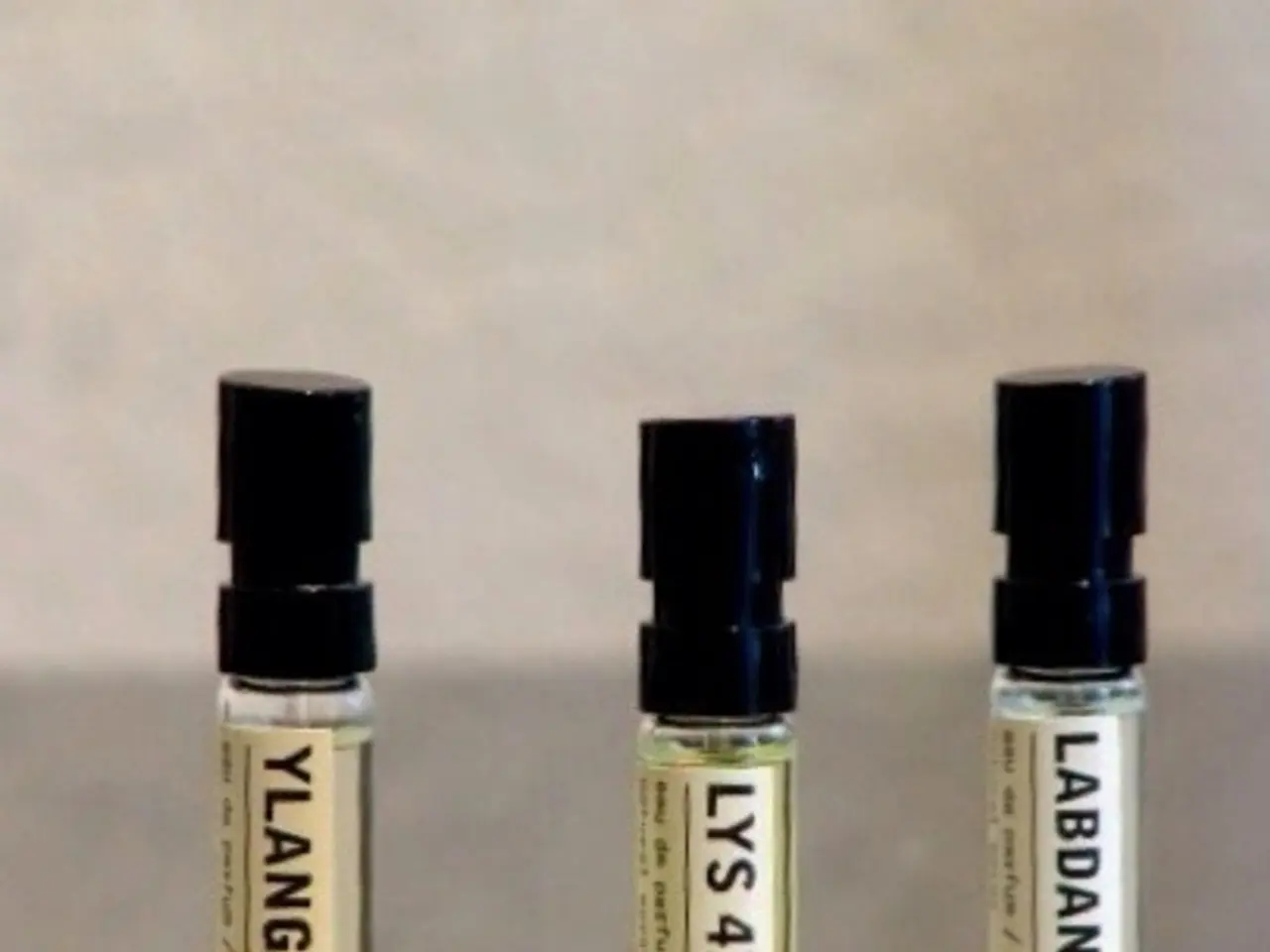Fragrant scent vaporizes in thin air.
Russia's Perfumery Industry Adapts to EU Sanctions
The EU sanctions on Russia have caused a significant shift in the Russian perfumery industry, primarily due to disrupted supply chains and increased costs of raw materials and technology[1]. The beauty and personal care industry in Russia has traditionally relied on imports from Europe and other regions for essential components, but these sanctions have made it challenging to secure necessary materials[1].
The restrictions have limited Russia's access to high-quality raw materials such as plant extracts, active cosmetic ingredients, and packaging, leading to supply delays and price inflation for perfumery and cosmetics manufacturers[1]. The exit or scale-down of multinational brands like LVMH from Russia further compounds the operational challenges faced by domestic producers[1].
In response, the local perfumery industry has seen an increase in production, with 393 perfume producers registered in Russia in the fourth quarter of 2024, a 45% increase from the previous year[2]. This increase in production volume was observed in the context of EU sanctions restricting the supply of fragrances to Russia[2].
However, the increased production may not immediately meet the market demand, as many enterprises that produced raw materials for fragrances have closed or are still reviving and falling short of meeting demand[1]. Alternative supply routes for fragrances may be found through countries like Turkey[2].
To mitigate the impact on domestic perfumery production, strategies such as developing localized supply chains, investing in domestic R&D and technology, boosting e-commerce and online sales channels, and seeking government support and incentives have been proposed[1]. These measures aim to reduce dependency on foreign technology and expertise, improve market access domestically, and support the domestic cosmetics and perfumery industry amid resource constraints.
Despite the challenges posed by the EU sanctions, the restrictions may not significantly affect producers of decorative and care products, according to Anna Dycheva-Smirnova[2]. However, the import of fragrances under the parallel import scheme may increase their cost by 10-20%[2].
European raw materials are mainly purchased for perfumery in Russia, as Russian consumers prefer 'French' fragrances, according to Natalia Rakoch[3]. The restrictions may impact producers who buy ready-made compositions, but not individual positions, according to Anna Dycheva-Smirnova[3].
In conclusion, the EU sanctions have indirectly increased Russian perfumery costs by restricting imports of raw materials and by causing multinational brands to exit the market, leading to supply chain disruptions and higher prices. Strategic domestic investment in raw materials and technology, plus expanding online retail, represent potential solutions to support domestic production amid sanctions[1].
References: 1. Kommersant FM 2. Natalia Rakoch 3. Yulia Savina 4. Anna Dycheva-Smirnova 5. Center for Combating Illegal Circulation of Industrial Products
The increased costs of raw materials and technology in Russia's perfumery industry, due to EU sanctions, have forced local producers to adapt and increase production, such as the 45% increase in registered perfume producers in the fourth quarter of 2024 [2]. This surge in domestic production is partially a response to the restricted supply of fragrances from Europe [2].
Strategies to combat the impact of EU sanctions include developing localized supply chains, investing in domestic R&D and technology, amplifying e-commerce, and seeking government support [1]. These measures aim to decrease dependency on foreign resources and expertise, improve domestic market access, and support the cosmetics and perfumery industry under resource limitations.




